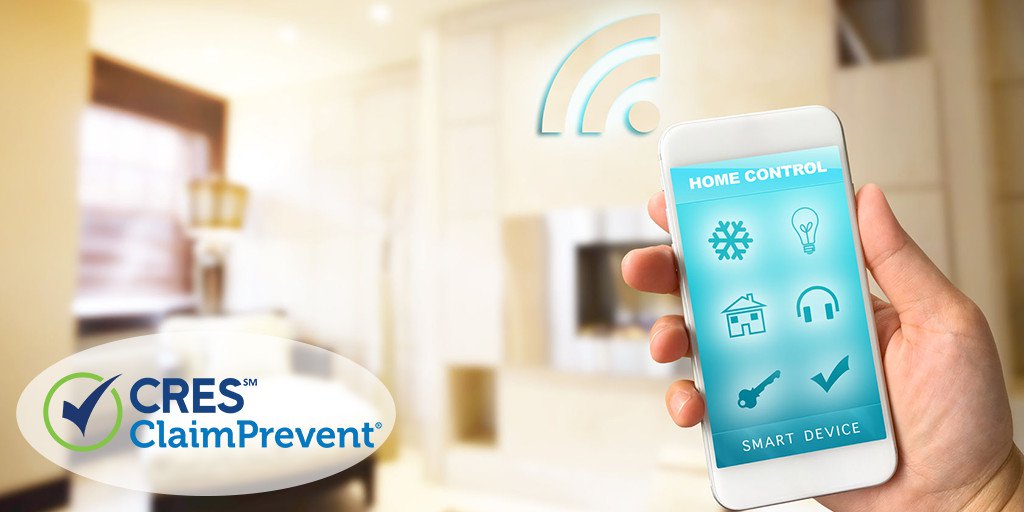With smart home technology on the rise, it’s important for real estate agents to know what’s available and how to showcase it. But, smart technology brings its own set of potential pitfalls. Here’s what you should know to protect yourself and your clients from misrepresentation, malfunction or breech.
What is smart home technology?
Smart home technology includes any appliance, product or system that can be controlled remotely from anywhere in the home, set to operate at a specific time, or capable of communicating with other objects on the property. This includes:
- Smart security, including smart locks
- Smart lighting
- Smart appliances
- Smart thermostats
- Smart entertainment systems, including audio and video
Although things like thermostats, appliances and lighting often stay with the house, smart objects are different. Understanding how smart home technology works will help you to maintain positive client relationships and protect your business from real estate lawsuits.
How to list a smart home for sale
Because many people are willing to pay more for homes with smart features, it pays to know these four critical pieces to a sale: which smart objects are included, do any of them require a monthly management fee under a contract, how they will be transferred, and what might trigger disclosures.
Should it stay or should it go?
Smart objects are tied to homeowners in ways a regular thermostat or lighting fixture are not, but they are still considered fixtures legally. Before selling the property, you need to know what smart objects will stay with the home, but it doesn’t hurt to list specific features in an addendum to your contract. Since many smart objects will remain with the home, you need to be clear on how and when their ownership and access will switch hands..
Are any devices or systems under a management contract?
For the devices or systems to be included in the sale, are any of them under a management contract? Be sure you determine the remaining term of any contract and the monthly payments required. Most systems contracts are transferable, so the new owner can just take over the payments. Be sure you disclose to potential buyers the existence of any on-going contract and the monthly payments required.
If the buyer does not want to accept the contract, your seller may elect to pay to cancel the contract. The contract may specify a cancellation fee, or it may require paying an amount equal to all of the remaining payments of the contract.
Avoiding data breaches
Since homeowners want to protect themselves and their information, it’s important that they disconnect all users and administrators from the system before they move out. Clearing all settings eliminates any information about their habits and makes it easier for the new owners to start fresh.
Additionally, you should encourage clients to make sure all items have been updated and notify smart technology companies about the change of ownership.
Know about collected data
Smart technology can gather data — from how much energy is used in a home to how much moisture there is in a basement. Real estate agents should be familiar with the amount and type of data gathered, as it could be disclosable information.
Protect yourself
Smart technology is still relatively new. Some clients will be looking for smart technology, while others will need to be educated on its benefits. By learning more about smart home technology,you’ll know how to use it to drive sales —and be aware of pitfalls that could lead to legal trouble.
If you have questions about contracts for smart homes or concerns about how a transfer of access to devices was handled, it’s good to get legal support. With CRES Real Estate E&O + ClaimPrevent®, you have access to a legal advice team to help answer questions about specific issues that may help you avoid a lawsuit.
What smart technology have you been seeing in homes? What special steps have you taken when selling smart homes?
Read more on our ClaimPrevent® Summary: Real Estate Licensee Responsibilities When Creating New Listings
